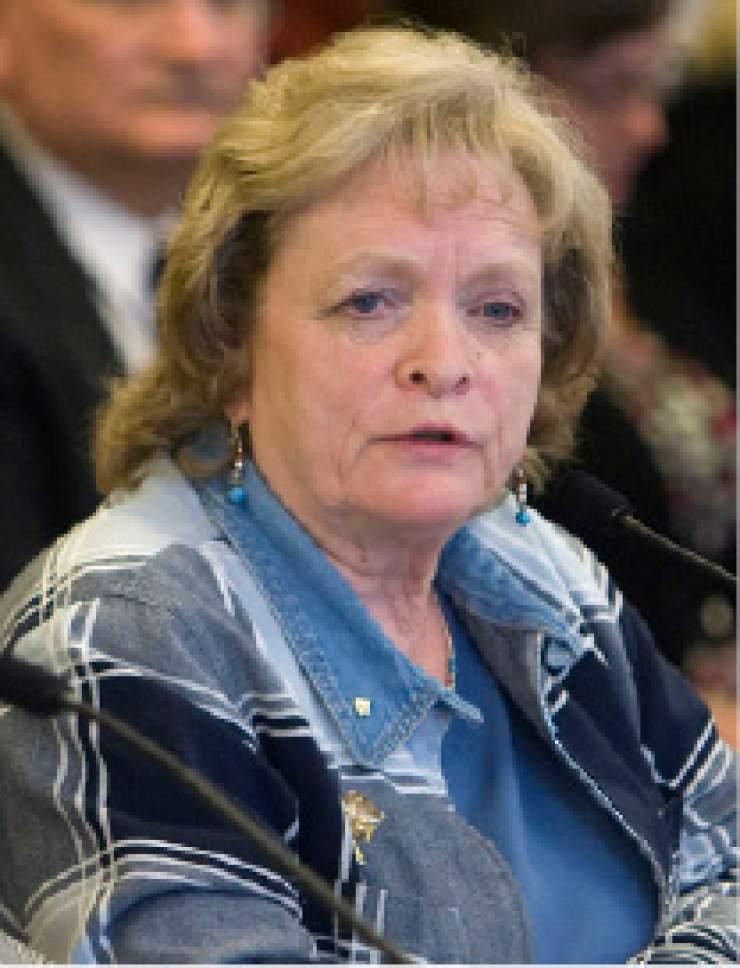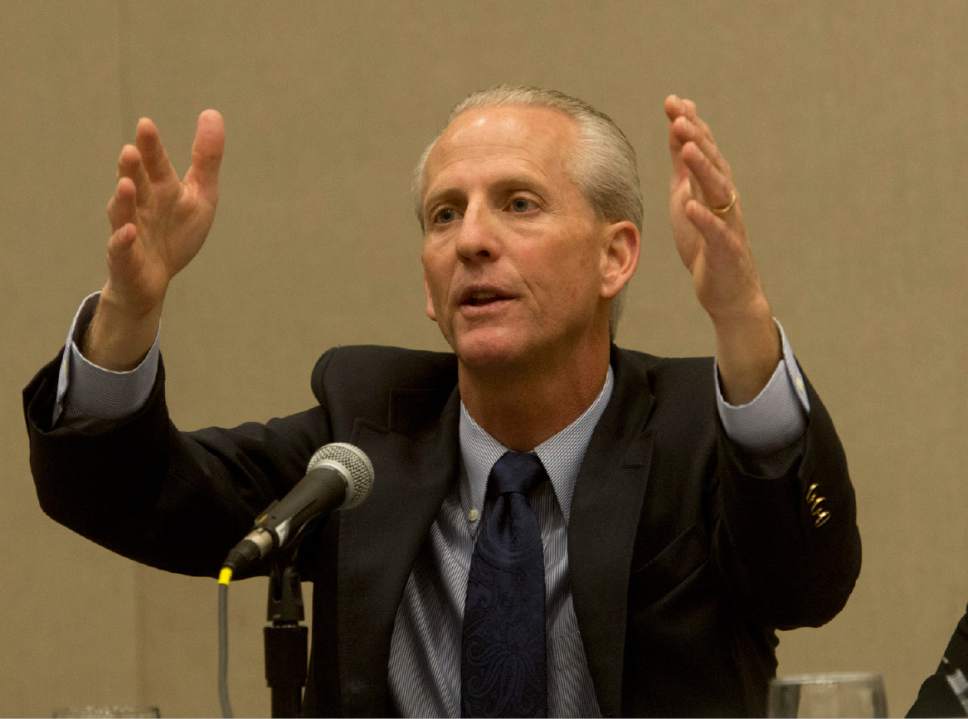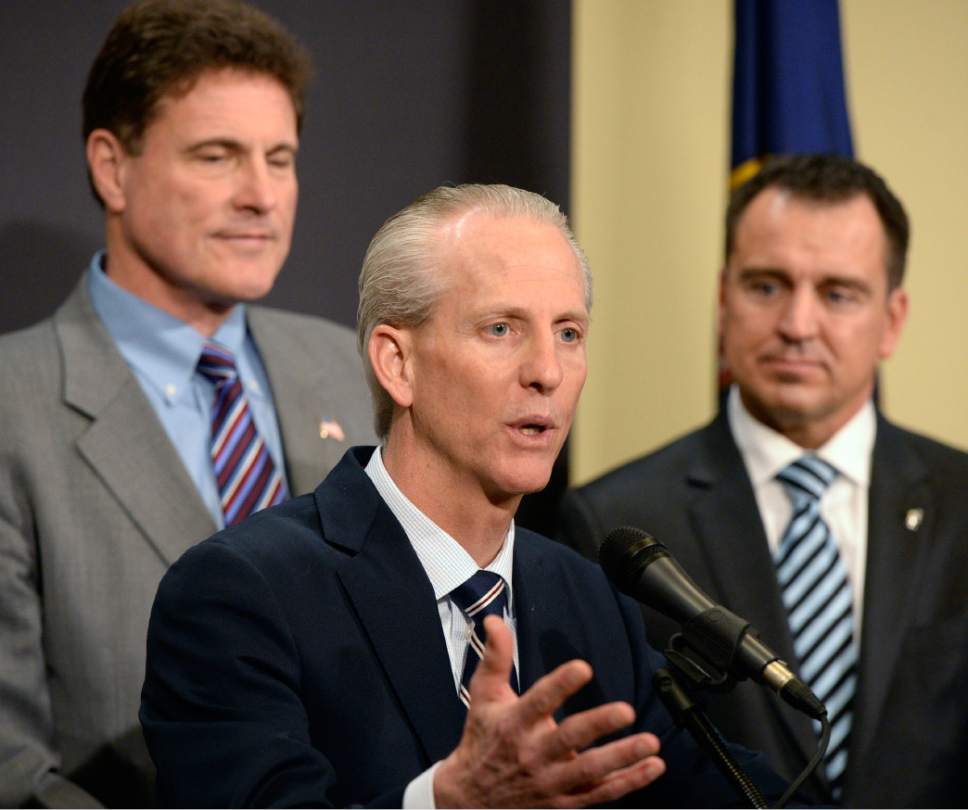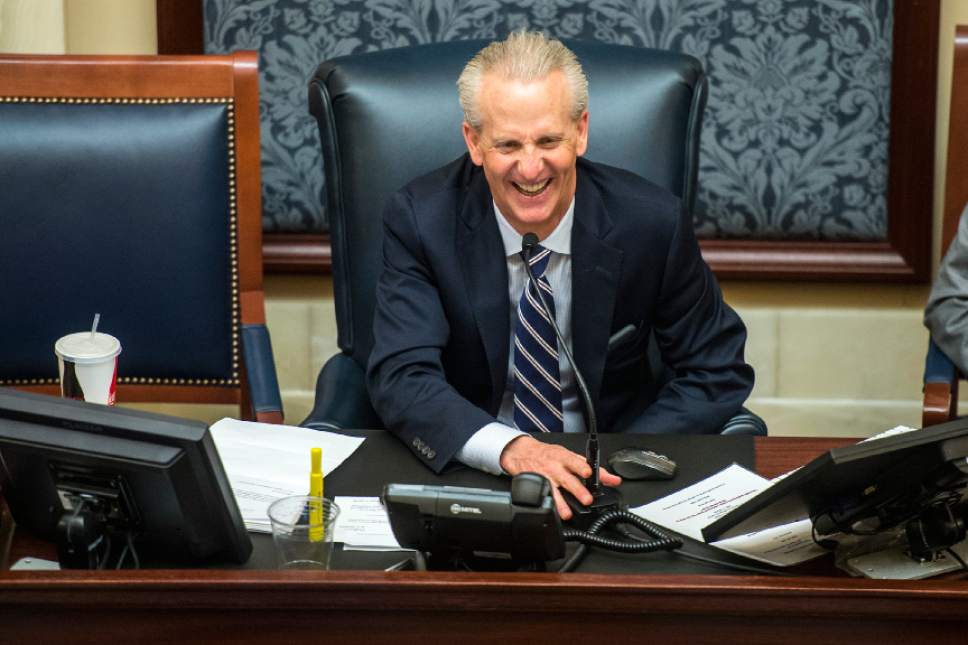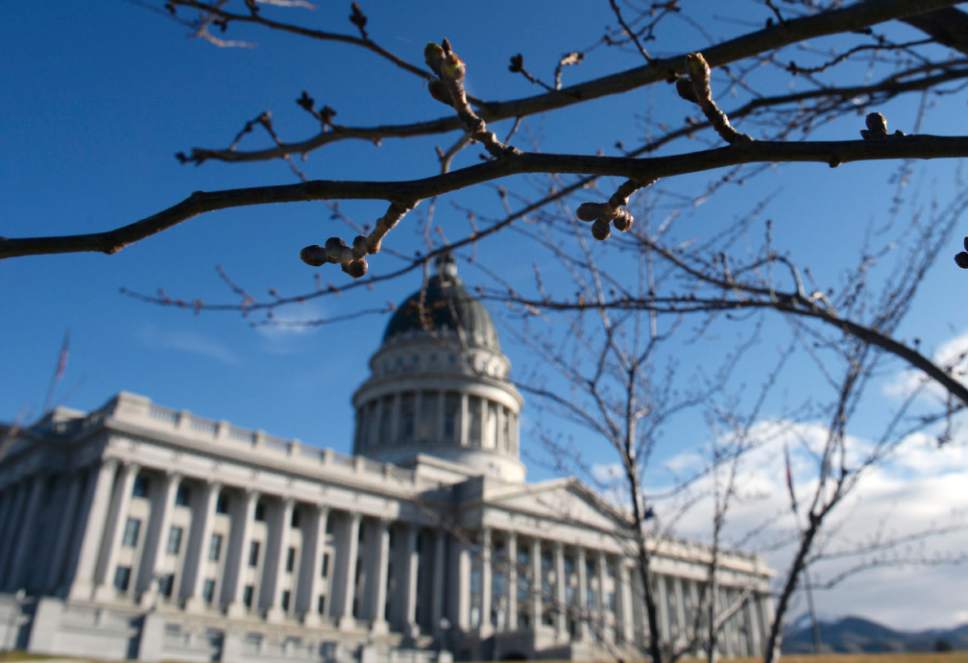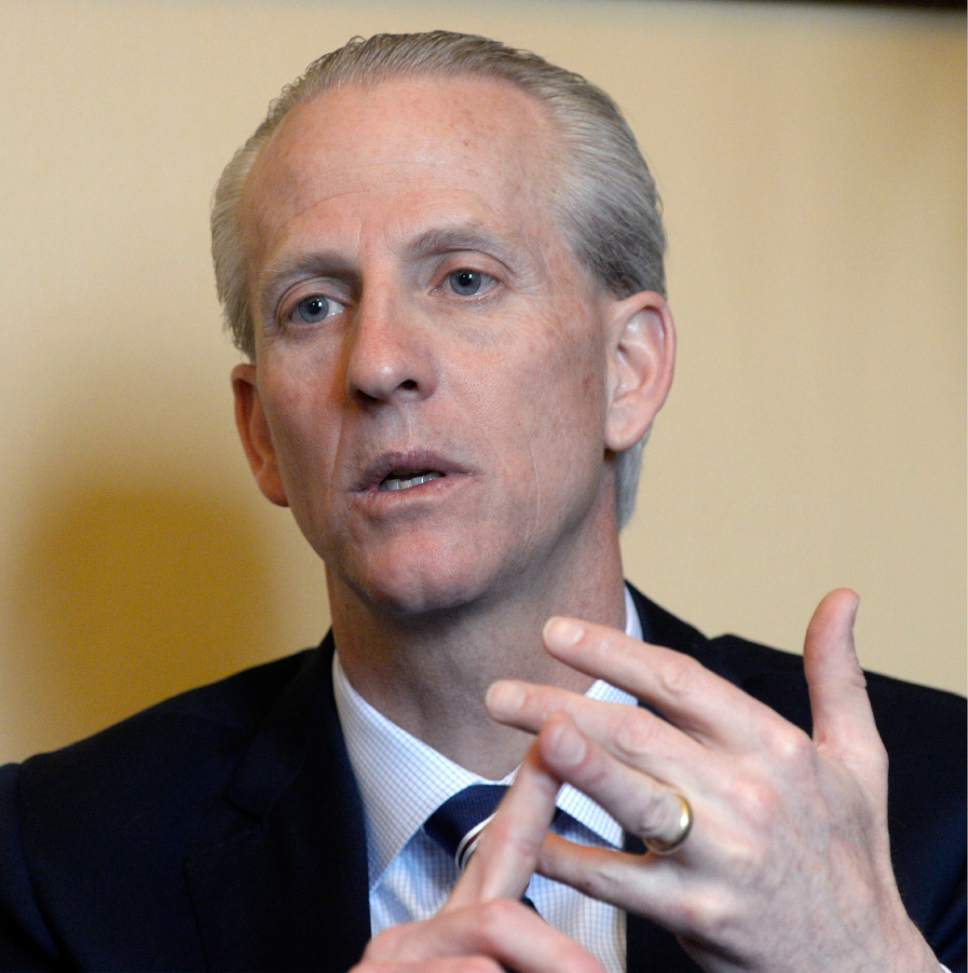This is an archived article that was published on sltrib.com in 2015, and information in the article may be outdated. It is provided only for personal research purposes and may not be reprinted.
For decades, but increasingly in recent years, state lawmakers have been pushing for a convention to add amendments to the U.S. Constitution, only to run into opposition from groups warning that such a meeting could devolve into the wholesale rewriting of the nation's charter.
This week, an estimated 100 bipartisan legislators from 30 states will be in Utah, attempting to put in rules and procedures they hope could act to keep such a constitutional convention on track, should legislatures from 34 states demand such a gathering.
"We're not focused on a specific amendment, so we're not advocating for a balanced budget or any other amendment that is being proposed out there in the world of the Internet, and there are many of them," said Utah Senate President Wayne Niederhauser, R-Sandy, a member of the Assembly of State Legislatures' executive committee. "What we're focused on is establishing the rules and procedures under which a convention to propose amendments to the Constitution could be held."
Article V of the U.S. Constitution requires Congress to convene a constitutional convention to consider amending the document if 34 states adopt resolutions requesting an amendment.
Twenty-seven states have passed resolutions seeking a convention to consider a balanced-budget amendment and Niederhauser said the 34-state threshold could be crossed within the next year, as other legislatures consider the amendment.
Proponents of the amendment are targeting 13 state legislatures in the upcoming year and would need seven to sign on to trigger a convention.
But an Article V convention has never been held in the nation's history, and the Constitution doesn't lay out any rules for how the convention should be conducted.
For example, how many delegates will attend? How will they be chosen? And will populous states send more or will each state get a set number?
Who will preside over the convention? What rules of procedure will be in place? And could the convention be limited to considering specific amendments, or would it be open to whatever amendments might be proposed?
Others have attempted to answer those questions, but there has been no definitive conclusion.
That is a concern to some — both liberal and conservative — who fear that once meeting, the convention delegates could go wild and do wholesale rewrites on the Constitution.
Gayle Ruzicka, president of the Utah Eagle Forum, says her biggest concern has always been who would be in charge of the convention and who would make the rules.
Article V gives Congress that authority, and she doesn't trust Congress to show restraint.
She takes no comfort in groups like the Assembly of Legislatures attempting to propose rules for a convention, because it will ultimately be up to Congress to decide how the convention would run.
"I guess they can meet and waste the time and money to put some rules on the shelf and it just doesn't mean anything," said Ruzicka.
Nationally, the American Civil Liberties Union has opposed an Article V convention because it fears the amendments could weaken civil liberties. Without rules to govern the selection of delegates, there is no way to know the convention would be representative, and there is no way to confine amendments to the proposed topic.
Niederhauser said the group doesn't expect that its proposed rules would just be adopted wholesale by the convention, but he hopes that by bringing together members of both parties and putting together a model for how the convention could operate, it might put to rest some of the fears of a "runaway" convention and at least give Congress a starting point for how to proceed, should a convention be called.
And, he said, the process already in place — where 38 states would still be required to ratify any amendment proposed by the convention — is a solid check against any convention chaos.
"I'm not worried about it at all," he said. "I know of about 25 red states out there that wouldn't ratify a runaway convention, so I think the risks are pretty minimal and it's a high bar."
The gathering in Salt Lake City will be the fourth meeting of the Assembly of State Legislatures.
The first was held in Mount Vernon, Va., in December 2013 and follow-up gatherings were held in Indiana and Washington, D.C., last year.
Twitter: @RobertGehrke


